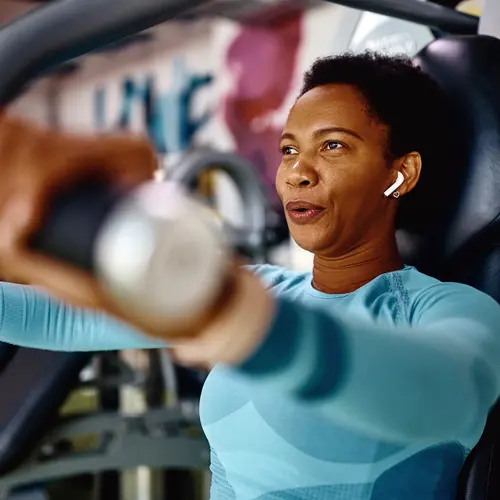Athletes work hard to win, from training to diet. There's a simple thing they might overlook: Going to bed an hour early.
"Getting enough sleep is crucial for athletic performance," says David Geier, MD, an orthopedic surgeon and sports medicine specialist in Charleston, SC. Studies show that good sleep can improve speed, accuracy, and reaction time in athletes.
How Much Sleep Do Athletes Need?
Most people need about 7 to 9 hours of sleep a night. If you're an athlete in training, you may need more.
"Just as athletes need more calories than most people when they're in training, they need more sleep, too," Geier says. You're pushing your body in practice, so you need more time to recover.
Athletes in training should sleep about an hour extra. You can go to sleep earlier, or take an afternoon nap, says Jim Thornton, president of the National Athletic Trainers' Association.
How Sleep Affects Athletic Performance
"Not getting enough sleep doesn't only make you tired the next day," Geier says. "It has a big impact on what's happening inside your body."
Felicia Stoler, RD, an exercise physiologist and registered dietitian in New Jersey, agrees. "Sleep is the time when your body repairs itself," she says. "If we don't get enough sleep, we don't perform well."
On the flip side, studies have found clear evidence that increasing sleep has real benefits for athletes.
One study tracked the Stanford University basketball team for several months. Players added an average of almost 2 hours of sleep a night. The results? Players increased their speed by 5%. Their free throws were 9% more accurate. They had faster reflexes and felt happier. Other studies have shown similar benefits for football players and other athletes.
4 Sleep Tips for Athletes
Getting enough sleep takes commitment, just like training.
A lot of things can get in the way, like travel for away games, practices early in the morning, games late in the evening, and the stress of competing.
Make these four fixes part of your routine.
- Get on a regular schedule. Go to bed and get up at the same time every day.
- When you travel, give yourself time to get used to your new setting. If you're traveling for an athletic competition, it's a good idea to get there a few days early -- or even weeks -- Stoler says. That way, your body can adjust and you have time to get on a normal sleep schedule.
- Avoid sleep medication. "Unless a doctor has prescribed it, don't take any sleep medications," Thornton says. Over-the-counter sleep aids are likely to disturb the quality of your sleep and your performance the next day. Relying on natural relaxation techniques before bed -- such as deep breathing -- is a better approach, he says.
- Reduce alcohol and caffeine. "Two or three days before a competition, start cutting back on caffeine and alcohol," Geier says. "You want to avoid anything that could disrupt your sleep."


